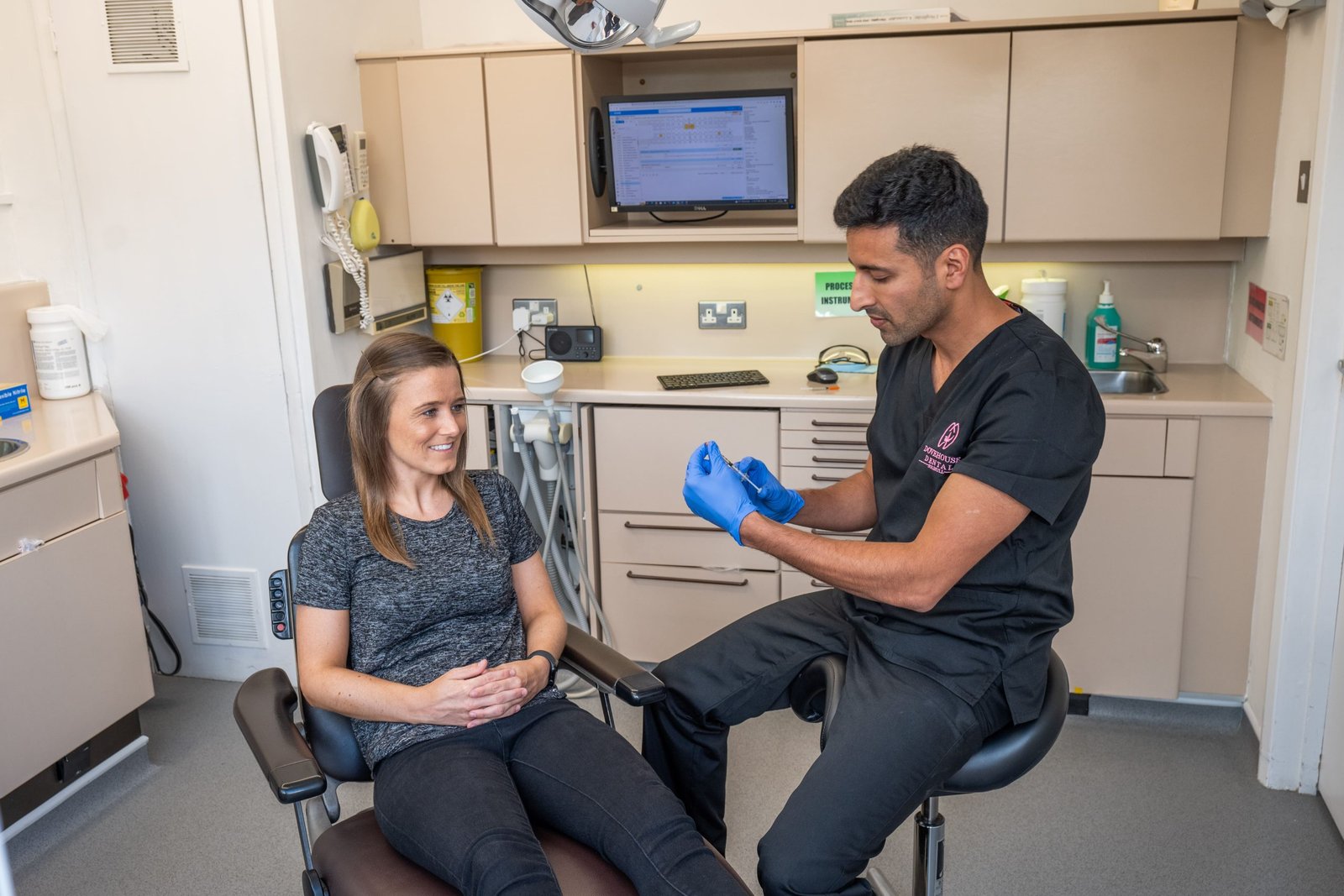Have you ever experienced the sudden panic of cracking or splitting a tooth? If so, you may need to seek immediate dental treatment from emergency dentists who specialise in treating broken teeth and split teeth. It can be a traumatic situation, leaving you unsure of what steps to take next. In these situations, it’s important to address your needs and overcome your fears. In this guide, we will walk you through the essential information and necessary actions when dealing with broken teeth or split teeth. It is important to know how to handle such dental emergencies and seek immediate attention from emergency dentists. They can provide the appropriate treatment, such as veneers, to restore your damaged teeth.
Immediate action is crucial. Ignoring or delaying treatment for split teeth can lead to further complications and potentially more extensive dental work down the line. It is important to seek immediate assistance from emergency dentists to address the issue. In some cases, veneers may be recommended as a solution, while sealants can help prevent future damage. So, it’s important not to underestimate the need for prompt repair when addressing issues such as decay and breaks.
Is a Cracked Tooth a Dental Emergency?
A cracked tooth can be a cause for concern, but determining whether it is a dental emergency depends on the severity of the crack and associated symptoms. Understanding when to seek immediate professional help is crucial in preventing potential risks and complications.
Explanation of when a cracked tooth is considered an emergency
When you have a cracked tooth, it’s important to assess the situation to determine if it requires urgent attention.
If you experience any of the following, consider it an emergency:
- Severe pain: Intense and persistent pain that radiates from the cracked tooth indicates nerve involvement and necessitates immediate dental care.
- Bleeding: If your cracked tooth causes bleeding that doesn’t subside within a few minutes, seek prompt professional assistance.
- Exposed nerve: When the crack exposes the sensitive inner layers of your tooth, leaving it vulnerable and causing extreme discomfort, it’s essential to see a dentist right away.
Potential risks and complications if left untreated
Ignoring a cracked tooth can lead to various risks and complications that can worsen over time. Some potential consequences include:
- Infection: A crack in your tooth creates an entry point for bacteria, increasing the risk of infection in both the affected tooth and surrounding tissues.
- Tooth loss: Without proper treatment, cracks can deepen or spread, compromising the integrity of your tooth structure and potentially leading to extraction.
- Abscess formation: An untreated crack may result in abscess formation—an accumulation of pus at the root tip—leading to severe pain, swelling, and even facial cellulitis.
Importance of seeking professional help promptly
Seeking professional help promptly when dealing with a cracked tooth is vital for several reasons:
- Accurate diagnosis: A dentist will examine your cracked tooth thoroughly using diagnostic tools like X-rays to assess its severity accurately.
- Pain management: Dental professionals can provide appropriate pain relief measures, including prescribing medications or performing nerve treatments to alleviate discomfort.
- Treatment options: A timely dental visit allows your dentist to recommend suitable treatment options based on the severity of the crack, such as bonding, dental crowns, or root canal therapy.
- Prevention of further damage: Early intervention can prevent the crack from worsening and potentially save your tooth from extraction.
Remember, a cracked tooth may not always be an emergency situation. If you have a minor crack without any associated symptoms, it’s still crucial to schedule a dental appointment for evaluation and appropriate guidance.
Self-Care at Home Before Seeking Treatment
Managing Pain and Discomfort at Home
Dealing with a cracked tooth can be quite painful, but there are steps you can take to manage the pain and discomfort until you can seek professional treatment. Here are some tips to help you find relief:
- Over-the-counter pain relievers: Non-prescription pain medications like ibuprofen or acetaminophen can help alleviate the pain temporarily. Follow the recommended dosage instructions on the packaging.
- Saltwater rinse: Mix half a teaspoon of salt in eight ounces of warm water and use it as a mouthwash. Gently swish the solution around your mouth for about 30 seconds before spitting it out. This rinse can help reduce inflammation and provide some relief.
- Cold compress: Apply an ice pack or cold compress to your cheek near the affected area for about 15 minutes at a time. The cold temperature can numb the area and reduce swelling, helping to alleviate pain.
Avoiding Further Damage to the Tooth
While waiting for dental care, it’s crucial to take precautions to prevent further damage to your cracked tooth.
Here’s what you should keep in mind:
- Be mindful of what you eat: Avoid hard, crunchy, or sticky foods that could potentially worsen the crack or cause additional fractures. Opt for softer foods that require less chewing instead.
- Practise good oral hygiene: Continue brushing your teeth twice a day using a soft-bristled toothbrush and fluoride toothpaste. Be gentle around the cracked tooth while brushing to avoid aggravating it further.
- Use temporary dental cement: If part of your tooth has broken off, you may consider using temporary dental cement available over-the-counter at pharmacies or online retailers. This can provide some protection until you receive professional treatment.
Precautions While Waiting for Dental Care
Waiting for dental care after experiencing a cracked tooth can be nerve-wracking, but there are precautions you can take to ensure the best possible outcome. Here’s what you should do:
- Avoid extreme temperatures: To prevent further sensitivity or pain, avoid consuming extremely hot or cold foods and beverages.
- Minimise pressure on the tooth: Try to chew on the opposite side of your mouth to reduce stress on the cracked tooth. Refrain from biting down on hard objects like pens or fingernails.
- Schedule an appointment with a dentist: Even if the pain subsides or you believe the crack is minor, it’s essential to seek professional dental care as soon as possible. Dentists have the expertise to diagnose and treat different cases of cracked teeth appropriately.
Remember, while self-care at home can provide temporary relief, it is not a substitute for professional treatment by a dentist. Following these self-care steps will help manage discomfort and protect your tooth until you can receive proper care from a dental professional.
By taking these precautions and seeking timely treatment, you can increase the chances of preserving your natural tooth and avoiding more extensive dental procedures in the long run.
Information to provide when calling the dental office
When contacting the dental office, make sure to provide all necessary details related to your cracked tooth:
- Your full name and contact information
- A brief description of your issue (cracked tooth)
- Any accompanying symptoms (pain, sensitivity)
- Relevant medical history or pre-existing conditions
- Insurance details (if applicable)
By giving accurate information during this initial call, you help streamline the process and ensure that the dental practice is prepared to address your emergency promptly.
Treatment Options for Cracked Teeth
Cracked teeth can be a painful and concerning dental issue. Fortunately, there are various treatment options available to address this problem.
Overview of Different Treatment Options
Several options exist depending on the severity of the crack and its location in the mouth.
Here are some commonly used treatments:
- Bonding: This procedure involves applying a tooth-coloured resin material to the cracked tooth, which is then hardened using a special light. Bonding is suitable for small cracks and can help restore both function and aesthetics.
- Crowns: A crown is a cap-shaped restoration that covers the entire tooth, providing strength and protection. For more extensive cracks that compromise tooth structure, crowns offer an effective solution by preventing further damage.
- Root Canal Treatment: When a crack extends into the pulp of the tooth, root canal therapy may be necessary to save it from extraction. During this procedure, the infected or damaged pulp is removed, followed by cleaning and sealing of the root canal system.
Factors Influencing Choice of Treatment
The choice of treatment for a cracked tooth depends on several factors:
- Severity of Crack: The extent to which a tooth is cracked plays a significant role in determining the appropriate treatment option. While bonding may suffice for minor cracks, more severe cases might require crowns or even root canal therapy.
- Location in the Mouth: Cracks occurring on front teeth have different implications compared to those affecting molars or premolars. The position of the crack influences both functional considerations and aesthetic concerns when selecting an appropriate treatment.
Causes of Tooth Breakage and Initial Steps
Tooth breaks can occur due to a variety of reasons, and understanding the common causes is essential in preventing further damage. When a tooth cracks or fractures, immediate action needs to be taken to ensure proper care. Here’s a step-by-step guide on what to do when you have a cracked tooth.
Common causes leading to tooth breakage or cracking
Tooth breaks can happen unexpectedly, causing discomfort and inconvenience. Some common causes include:
- Biting down on hard objects: Crunching on ice cubes, hard candies, or using your teeth as tools can lead to tooth fractures.
- Trauma or injury: Accidents during sports activities or falls can result in chipped or broken teeth.
- Tooth decay: Untreated cavities weaken the structure of the tooth, making it more susceptible to breaking.
- Teeth grinding (bruxism): Consistent grinding or clenching of teeth puts excessive pressure on them, increasing the risk of cracks.
- Age-related wear and tear: Over time, teeth may become weaker due to natural ageing processes.
Immediate actions to take after experiencing a broken tooth
When faced with a broken tooth, it’s important to act quickly and take appropriate steps:
- Rinse your mouth with warm water: Gently swish warm water around your mouth to clean the area and remove any debris.
- Control bleeding (if any): If there is bleeding from the broken tooth or surrounding gums, apply gentle pressure with sterile gauze until it stops.
- Reduce swelling: Apply a cold compress on the affected area externally for 10 minutes at a time to minimise swelling.
- Manage pain: Over-the-counter pain relievers like ibuprofen can help alleviate discomfort while waiting for dental treatment.
How to handle specific situations like chipped or fractured teeth
Depending on the severity of the breakage, different types of tooth fractures require specific care:
- Chipped tooth: If only a small piece of the tooth has broken off, save the fragment if possible and visit a dentist as soon as you can. They may be able to bond the fragment back onto the tooth.
- Cracked tooth: A cracked tooth extends beyond just chipping and can cause sensitivity or pain. Avoid chewing on that side of your mouth and seek dental attention promptly.
- Fractured cusp: When a part of the chewing surface breaks off, it usually doesn’t cause much pain but should still be evaluated by a dentist.
- Split tooth: In cases where a crack extends vertically through the entire tooth, extraction may be necessary depending on its severity. However, root canal treatment followed by a crown might be an option for saving certain split teeth.
Remember, proper dental care is crucial in preventing tooth breaks. Regular visits to your dentist for check-ups and maintaining good oral hygiene practices will help keep your teeth strong and healthy.
By understanding the common causes of tooth breakage and taking immediate action when faced with a broken or cracked tooth, you can ensure that proper care is provided to minimise further damage and maintain optimal oral health.
FAQs about Broken Teeth and Repair
How long does it take to repair a cracked tooth?
Repairing a cracked tooth is not a one-size-fits-all process, as the time required for treatment can vary depending on the severity of the crack. In some cases, a simple bonding procedure can be completed in just one visit to your dentist, taking around 30 minutes to an hour. This involves applying a tooth-coloured resin material to the affected area, which is then shaped and polished to blend seamlessly with your natural teeth.
However, if the crack is more extensive or reaches the inner layers of the tooth, additional procedures may be necessary. For instance, if the crack extends into the root or pulp of the tooth, root canal therapy may be needed before any restorative work can be done. This process typically requires two or more visits to complete. Afterward, your dentist may recommend placing a dental crown over the treated tooth for added protection and strength.
It’s important to note that each case is unique, and only a dental professional can accurately assess your situation and provide an estimate of how long repairs will take.
Do all cracks require treatment?
Not all cracks in teeth necessarily require immediate treatment. Some minor cracks may not cause any pain or discomfort and can be monitored by your dentist during regular check-ups. However, it’s crucial to understand that even small cracks have the potential to worsen over time if left untreated.
To determine whether treatment is necessary for your cracked tooth, it’s best to consult with a dentist who can evaluate its severity. They will consider factors such as:
- The location and size of the crack
- The symptoms you are experiencing (if any)
- The potential impact on neighbouring teeth
- The risk of infection or decay
Based on their assessment, they will recommend an appropriate course of action which may include monitoring closely without intervention or pursuing various treatment options like bonding, crowns, or root canal therapy.
What are the consequences of leaving a cracked tooth untreated?
Leaving a cracked tooth untreated can lead to several complications and potentially worsen the damage. Here are some possible consequences:
- Increased pain: Cracks in teeth can expose the sensitive inner layers, causing heightened sensitivity to temperature changes and pressure. Over time, the pain may become more intense and persistent.
- Infection: If bacteria enter through the crack, it can cause an infection in the pulp chamber of the tooth, leading to abscess formation.
- Tooth loss: Without proper treatment, cracks can progress and extend deeper into the tooth structure, making it irreparable. In such cases, extraction might be necessary.
- Gum disease: The presence of a cracked tooth can create challenges for oral hygiene maintenance, increasing the risk of gum disease and decay in surrounding teeth.
To prevent these complications and preserve your oral health, it is essential to seek professional advice if you suspect you have a cracked tooth.
Taking Prompt Steps for Treating a Cracked Tooth
Now that you have a better understanding of what to do when you have a cracked tooth, it’s crucial to take prompt steps for treatment. Remember, time is of the essence. Don’t delay seeking professional help if you experience any signs or symptoms of a cracked tooth.
Make an emergency dental appointment as soon as possible to receive proper diagnosis and treatment. In the meantime, practice self-care at home by avoiding hard or chewy foods, rinsing your mouth with warm saltwater, and taking over-the-counter pain relievers if needed. By following these steps and seeking immediate dental care, you can increase your chances of preserving your natural tooth and restoring your oral health.
FAQs about Broken Teeth and Repair
Can I wait to see a dentist if I have a cracked tooth?
It’s best not to wait. Even if you’re not experiencing severe pain or discomfort, delaying treatment can lead to further damage or infection. Make an appointment with a dentist as soon as possible.
Will my insurance cover the cost of treating a cracked tooth?
The coverage for treating a cracked tooth may vary depending on your insurance plan. It’s recommended to contact your insurance provider beforehand to understand the extent of coverage for dental emergencies.
How long does it take to repair a cracked tooth?
The time required for repairing a cracked tooth depends on the severity of the crack and the chosen treatment option. Simple repairs may be completed in one visit, while more complex cases might require multiple appointments.
Can I prevent cracking my teeth in the future?
While accidents happen, there are some preventive measures you can take to reduce the risk of cracking your teeth. Avoid chewing on hard objects like ice or popcorn kernels, wear protective gear during sports activities, and maintain regular dental check-ups for early detection and treatment of any dental issues.
What if I can’t afford the cost of treatment for a cracked tooth?
If you’re concerned about the cost of treatment, discuss your financial situation with your dentist. They may offer payment plans or recommend alternative options to help make the treatment more affordable for you.




